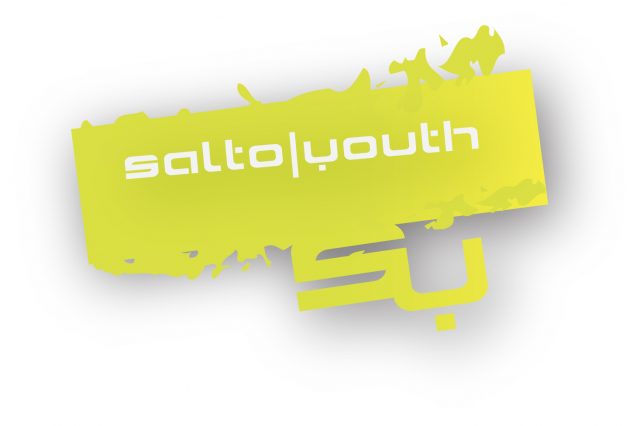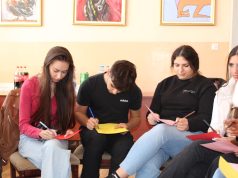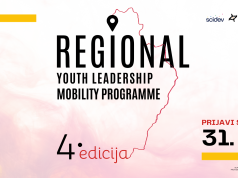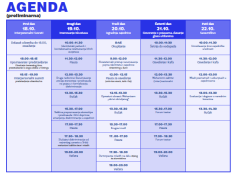Four years have passed since the beginning of the Berlin process in 2014. What has been its impact in the field of youth? Where do we see a need for further action? How can we contribute to moving further ahead?
We want to take a particular look at fields where youth work can play an important role: youth participation and engagement, civic education (with a European dimension) and social inclusion, and explore:
• What kinds of initiatives and projects have been implemented in the past years?
• What can be done, and what can we do to enhance their impact?
• What are key messages to inform the next summit of the Berlin process in London and other political processes?
The SALTO South East Europe Resource Centre together with the German, Macedonian and Slovenian National Agencies for Erasmus+, youth field and the Erasmus+: Youth in Action Contact Point in Montenegro, association ADP-Zid, invite 30 youth work practitioners from Erasmus+ Programme countries and the Partner countries in the Western Balkans to reflect and discuss these questions, give visibility to inspiring practices, and formulate suggestions and recommendations aiming to stimulate further developments in the Western Balkans and the European integration of the region.
BACKGROUND
The »Berlin process«, initiated in 2014 in Berlin, aimed to step up the process of European integration of the Western Balkan region. The youth events accompanying the annual summits of heads of state and government in Paris, 2016, and Trieste, 2017, concluded with recommendations for further developments the youth field; in addition, an Action Plan for youth work and youth policy was defined at the first Europe-Western Balkans Youth Meeting in Ljubljana in 2016.
Increasing support for regional cooperation between the countries of the Western Balkan region aiming to support reconciliation was one important recommendation, and the establishment of the Regional Youth Coordination Office for the Western Balkans (RYCO) today represents the most visible result of the Berlin process in the field of youth. At the same time, over 2.500 European cooperation projects involving over 15.000 participants from the Western Balkans and a variety of countries across Europe have been implemented in the field of youth with the support of the Erasmus+ programme since 2014 supporting the exchange of practices, the building of competences and capacities, intercultural understanding and long-lasting partnerships.
The next summit of heads of state and government within the Berlin process will take place in London on 9 – 10 July 2018; another youth event is foreseen to be held in the autumn. The European integration process of the Western Balkan region has received an additional impetus with the announcement by the European Commission, on 6 February 2018, of “A credible enlargement perspective for and enhanced EU engagement with the Western Balkans”. Two flagship initiatives include enhanced support for European and regional cooperation with specific reference to the role of Erasmus+ and RYCO in stepping up the process of reconciliation and the social and economic development of the region.
Further important developments in the youth field at European level, which can be expected to have an influence on possibilities for cooperation with and developments in the region include the development of a new EU youth strategy as well as a new generation of European youth programmes following the end of the current Erasmus+ programme in 2020.
OBJECTIVES AND APPROACH OF THIS MEETING
First assessments of the Berlin process point to positive developments it has stimulated in different fields. While it might be difficult to ascertain, what has been the impact of the Berlin process as such, we want to take a look at and take stock of what changes have been initiated in the field of youth, in particular youth work, in the past few years, and how these developments can be further supported.
This meeting will focus on youth participation and engagement; civic (non-formal) education with a European dimension and social inclusion, thus taking a look at thematic areas where youth work can make a difference. The three themes are interlinked. Civic education can increase young people’s critical thinking and their understanding of democracy and of their opportunities for active social and political participation and engagement. Promoting processes aiming to increase the access to equal participation for young people with fewer opportunities and health issues, such as access to relevant information, is a key issue in this context.
Youth workers and youth leaders contributing to the Ljubljana Action Plan and the recommendations from the Trieste and Paris youth conferences listed these areas among the priority themes, and they are also at the heart of the Erasmus+: Youth in Action Programme.
As a basis for discussions during the meeting, we will collect and compile information about what has happened in the past years, about implemented projects, initiatives and policies regarding the above themes. A survey addressing youth work practitioners and selected other stakeholders will be carried out for this purpose. Experts will provide additional information during the meeting.
The objectives of the Meeting are to:
• Collect information about youth work and youth policy-related initiatives and projects that have been undertaken to take stock of and make more visible what has happened in the youth work and youth policy field in the past years;
• Assess the outcomes of implemented projects and initiatives, share inspiring practices, and look into how to further promote and enhance their impact;
• Explore the added value of European partnerships and projects in this context;
• Define some key messages addressed to policy makers, practitioners and programmes (in particular Erasmus+) to inform the London summit and the youth event of the Berlin process in 2018 as well as other relevant ongoing or upcoming meetings and processes.
The Meeting will last for two full working days, starting with lunch on Wednesday, 23rd May and ending with lunch on Friday, 25th May.
The programme will be facilitated by two experienced facilitators, Ajša Hadzibegović and Andreas Karsten.
WHO CAN PARTICIPATE?
Participants should:
• Come from an Erasmus+ Programme Country or a Partner Country in the Western Balkans;
• Be actively involved in working with young people, promoting non-formal learning, youth participation and civic engagement;
• Have a keen interest in creating stronger links between youth work practice and policy and enhancing the political impact of youth work;
• Have implemented/be currently involved in a project or policy initiative dealing with any of the topics of this meeting (youth participation and engagement, civic education (with a European dimension), social inclusion of young people with fewer opportunities);
• Participants from Erasmus+ Programme countries should be motivated to develop stronger links of their organisation with the Western Balkan region. Organisations with experience in cooperation with partners from the Western Balkans will be given priority in the selection process.
• Be able to actively participate in the programme in English.
Participants that have taken part in former meetings in the framework of the Berlin process, such as the youth conferences in Paris (2016) or Trieste (2017) or the Europe-WB youth meeting in Ljubljana (2016) are particularly invited to apply. However, participation in any of these meetings is not a prerequisite for participation in this Meeting.
Training overview
This Seminar / Conference is for 30 participantsfrom Erasmus+: Youth in Action Programme countries , Western Balkan countries and recommended for Youth workers, Youth leaders, Project managers, Youth Policy Makers
Working language(s): English
Co-organizer(s):
- MOVIT, National Agency for Erasmus+, youth chapter (National Agency)
- Jugend für Europa – German National Agency for Erasmus+: Youth in Action (National Agency)
- National Agency for European Educational Programmes and Mobility – Macedonian National Agency for Erasmus+ (National Agency)
Contact for questions:
Costs
Full board and lodging of all selected participants will be covered by the organisers.
Travel costs of participants coming from Erasmus+ Programme countries will be covered by the National Agency in the participant’s country. Travel costs of participants coming from Albania, Bosnia and Herzegovina, Kosovo, Montenegro and Serbia will be covered by the SALTO SEE Resource Centre.












